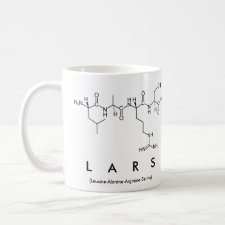
Authors: Owens PK, Karlsson L, Lutz ESM, Andersson LI
Article Title: Molecular imprinting for bio-and pharmaceutical analysis.
Publication date: 1999
Journal: TrAC Trends in Analytical Chemistry
Volume: 18
Issue: (3)
Page numbers: 146-154.
DOI: 10.1016/S0165-9936(98)00092-2
Abstract: The potential of analytical techniques based on molecular imprinting is reviewed from the viewpoint of bio- and pharmaceutical analysis. A literature study shows that molecularly imprinted polymers (MIPs) have been implemented predominantly in three areas of interest to pharmaceutical industry laboratories. First, in sample preparation, imprinted polymers are used as the sorbent for solid phase extraction purposes. Secondly, MIPs serve as the stationary phase for analytical chromatographic and electrophoretic separations. Thirdly, imprinted polymers are utilised as analyte recognition materials in affinity assays. The advantages of MIPs, e.g., physical robustness, high strength, resistance to elevated temperatures and pressures, and inertness towards acids, bases, metal ions and organic solvents, have been well exploited in a large number of applications. This article focuses on how these benefits may be used for improving the quality of analytical procedures. Some key MIP disadvantages are also highlighted, especially in relation to other analytical techniques. (C) 1999 Published by Elsevier Science B.V. All rights reserved



Join the Society for Molecular Imprinting

New items RSS feed
Sign-up for e-mail updates:
Choose between receiving an occasional newsletter or more frequent e-mail alerts.
Click here to go to the sign-up page.
Is your name elemental or peptidic? Enter your name and find out by clicking either of the buttons below!
Other products you may like:
 MIPdatabase
MIPdatabase









